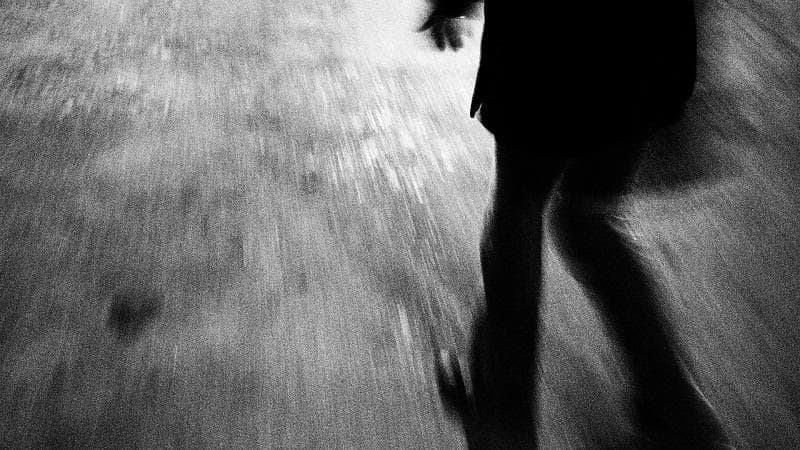Am I anxious just because I’m made this way, or did I learn to be this way?
Whilst some of us are predisposed towards anxiety like myself (Sensitive types are like Orchids), I can’t help but feel that, in some way, I learned to be anxious. I think that for many chronic worriers, we worry because it’s a behaviour we have learned so well and have practised so much we follow it out of habit.
We get into a groove of behaving and thinking in specific ways. In my case, this scenario involves up-and-coming social situations, and I learned to be anxious in those moments (anticipatory anxiety). Like any habit, we follow the same behaviour whenever the situation arises.
Problems we worry over are like mental chew toys; the future has many of them. We ruminate on them, ‘chew the cud’ because it’s a habit we have picked up. It gives our minds something to do but doesn’t help a lot.
So anxiety, I feel, has become a habit for many of us. This wild and negative speculation about the future becomes our habitual go-to place when facing uncertainty. We engage our minds in thinking because that’s the behaviour we think will do us most good. The more you think, the more you want to think, becoming almost like an addiction.
Anxiety or thinking is our default, and thinking negatively is but a short step away. But that doesn’t mean this habit cannot be changed. That’s why I like Buddhism. To be mindful, we stop ruminating and pay attention. We turn our mind away from ideas and towards the senses and body sensations, a common one being our breath. Making this a habit as an alternative to worrying is why it’s recommended for anxiety sufferers.
It doesn’t have to involve mindfulness and meditation; it could also involve talking with a best friend, taking in some art, or engaging in some form of exercise.
If worry is a habit, we can treat it as any other behaviour we want to change. We can reduce our anxiety by avoiding the automatic leap towards thought when we face a problem.
I won’t go into depth here about habit change as it’s a whole topic. But by thinking of anxiety as a habit, we can feel a little more empowered to change it towards something healthier for us and less ashamed of having a bad habit.
Looking back on my journey of anxiety, I can see I changed my thinking habits with alternatives, with writing, art, yoga, socialising and exercise. Anxiety is partly a lifestyle; to be less anxious, we need to change that lifestyle.
Avoidance
The very friends we need are the ones who will save us from our nightmares.
Maybe it’s not anxiety that’s the habit, but the running. I read somewhere that we don’t run because we’re afraid; we’re afraid because we run. Our fears remain because we refuse to face them and seek an understanding. As such, we never learn the truth about them if we keep running away.
Avoidance became a habit for me, and I never challenged my perceptions and practices for a long time. That’s the worst thing loneliness does to people. We become so afraid to face others we end up in a little bubble of our own. In such a bubble, our fear grows stronger with no reality or facts to challenge or shatter them. Such isolation lets us live in a fantasy realm bearing little resemblance to the real world. The truth is people are far more compassionate and forgiving than we imagine.
When alone, our perceptions become distorted. We tend to imagine the worst, falling into a spiralling circle of fear, low self-worth and delusion.
Without reality to guide us, our worldview becomes tainted and poisonous. Cynicism and pessimism lead to bitterness, regret, and anger. Which only keeps people away, perpetuating the cycle of suffering.
Fear and hurt create a self-fulfilling prophecy. We run towards rumination and away from reality because we habitually do so. So, we end up more in our heads with all the demons they conjure up. Despair, shame, guilt, self-pity, helplessness. The Four Horseman of the Modern Apocalypse, as I call them.
Because we don’t test our ideas or beliefs in the real world, our nightmares and fears find their own life. Away from the world’s light, our habitual instinct to turn inwards is not bad, especially for an artist. But it comes with risk. Always turning inwards means our fears are fed by ignorance; we fail to learn the truth that our suffering is based upon falsehoods.
To break the illusions and ease our suffering, we must reduce the habit of running away and turning inwards when something upsetting happens. Instead, we need to adopt a different habit that faces the fear and helps us cope with our feelings.
Mindfulness is a way of breaking the habit of running away from our fears and towards thought. Just being with the feelings in time can help us understand them, and so they no longer have quite the same power over us.
Image by Jake Heckey from Pixabay

